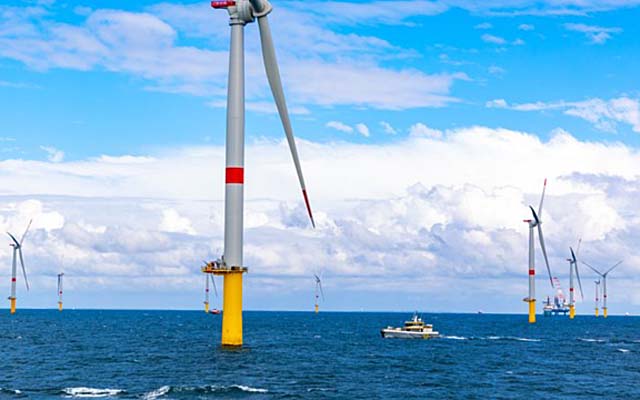Design consultancy BMT reports that Australian offshore wind energy developer Southerly Ten has joined the Blue Economy CRC ‘Hydrogen Powering of Vessels’ project as a new partner.
This partnership aims to further the development of hydrogen-powered windfarm support vessels, providing a critical use case study to drive innovation in the maritime industry. The Blue Economy CRC project has been established to produce a feasibility study into hydrogen and ammonia powered vessels in Australian waters.
Since early 2024, BMT has been leading the Hydrogen Powering of Vessels project on behalf of the Blue Economy CRC, an industry and academic partnership funded by the Australian Government that brings together 43 industry, government, and research partners from 10 countries with expertise in aquaculture, marine renewable energy, maritime engineering, environmental assessments and policy and regulation.
The project initially focused on assessing the feasibility of using hydrogen as a marine fuel in Australia. The findings of Phase 1, detailed in the report A Review of the Feasibility of Utilising Hydrogen as a Marine Fuel in Australia (November 2023), highlighted significant potential for hydrogen-powered vessels, especially in the domestic commercial sector.
The addition of Southerly Ten to the project is considered to mark an exciting new phase. Southerly Ten, which has two feasibility licences in the Gippsland offshore wind zone, will contribute insights into vessel sizing, fleet mix studies and operational requirements for windfarm support. This collaboration will explore both CTVs and SOVs, focusing on optimising vessel design for high sea states and long transit distances common in offshore wind farm operations.
Graeme Nayler, Regional Business Director BMT Asia Pacific, said: “We are delighted to welcome Southerly Ten as a project partner. Their expertise will enhance our ability to develop a practical and sustainable roadmap for hydrogen-powered vessels. This case study on windfarm support vessels will allow us to apply our extensive experience in vessel design and lifecycle costing to a real-world application, comparing hydrogen-powered designs to more conventional diesel-powered vessels.”
With Southerly Ten’s partnership, the hydrogen powering of vessels project will now focus on integrating advanced hydrogen technologies, such as fuel cells and hydrogen internal combustion engines, specifically tailored for windfarm support operations. Storage and bunkering options, including liquefied hydrogen, compressed gaseous hydrogen, and metal hydrides, will be evaluated to ensure safe and efficient fuel use.
Charles Rattray, CEO Southerly Ten added: “We‘re pleased to join as a Project Partner to explore hydrogen powered offshore wind support vessels. This is an exciting opportunity to drive decarbonisation and pioneer sustainable solutions in the high-growth maritime industry”.
BMT and Southerly Ten’s collaboration is expected to provide data and practical examples to guide the maritime industry’s transition to zero-emission technologies. The project will explore the potential of hydrogen as a sustainable marine fuel, contributing to a greener future and aligning with global and UNSDG goals to reduce GHG emissions from the ever-evolving maritime sector.
Image: Blue Economy CRC is investigating hydrogen-fuelled vessels for offshore wind in Australia and New Zealand (source: BMT)



